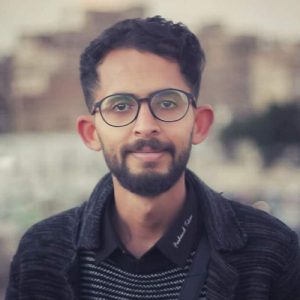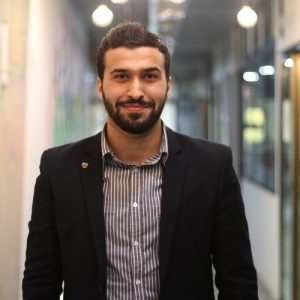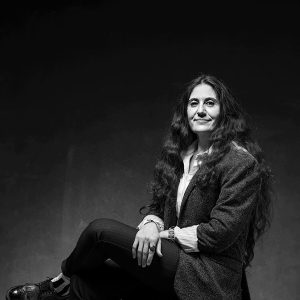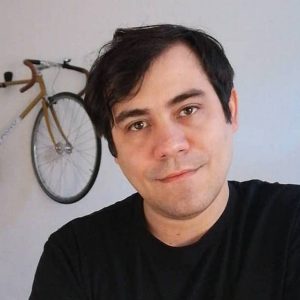18 Oct 2023 | Israel, News, Palestine
The tragedies unfolding in Israel and Gaza are putting the social media platform X to the test – a test that X keeps failing. X, formerly known as Twitter, has elevated disinformation alongside fact-based reports on the conflict that range from graphic images created through AI, video game footage, and a plethora of recycled clips from Syria’s decade-long conflict.
Yet X’s disinformation overload should have been expected. Since Elon Musk’s acquisition of the platform, it has undergone a series of algorithmic and “aesthetic” changes that upended the credibility of the content. Instead of boosting posts from experts and on-the-ground reporting, X’s algorithm promotes Twitter Blue subscriptions, accounts which pay for a verification checkmark. This “pay to play” method has served to boost accounts of bots and propagandists, and has enabled disinformation to go viral in a short amount of time.
Musk’s favourite sycophants are being rewarded for their click-baiting methods amid the violence in Israel and on the Gaza Strip. Mario Nawfal – an obscure businessman who gained a following on X from his endorsements by Musk – posted a 2020 YouTube video showing Turkish missiles fired in northern Syria. Nawfal misstated: “Salvo of rockets fired by Hamas from the Gaza Strip towards Israel” alongside the video.
His message was tagged with a “community note” – an X fact-check system implemented through crowd-sourcing. But the post remained up, highly visible because of X’s algorithm. As of this writing, the post had more than two million views.
Musk’s own attention-seeking posts amid the violence demonstrate that. “All Tesla superchargers in Israel are free,” Musk posted. But his gesture was not all about altruism. There was a caveat. The post was restricted to replies from paid subscribers only.
Of greater concern is the platform’s role and influence in spreading distortion and disinformation. Musk bought Twitter for his own ideological reasons, and has viewed himself at war with “woke” values, which he argues erodes the foundations of democracy. Through his own personal crusades he has aligned himself with far-right ideologues and authoritarian leaders. And in turn he has garnered their loyalty.
Musk has made other changes on X that also have had a profound impact on how facts are represented. Earlier this month, X removed media-composed headlines from news articles. Musk argued the change was to “greatly improve the aesthetics” of the platform. But now users are shown images without context, allowing for bots, propagandists and even meme accounts to fill in the blanks with unsubstantiated claims. The result has created an alternative reality where conspiracies reign over fact.
As Twitter, the platform was a digital democratiser that gave voice to ordinary citizens beyond the confines of traditional media. In times of political upheaval or natural disaster, Twitter had a reputation for delivering on-the-ground reporting and firsthand accounts in real time.
Now it is Musk’s personal megaphone promoting his political views and business interests.
X’s representation of the events in Israel and Gaza reveal that the platform’s strengths for truth-telling are eroded and all but gone. Will we heed the warnings by Twitter’s demise or even realise the impact X now has on how we see the world?
13 Oct 2023 | Israel, News, Palestine
The events of the last week have been horrific. We won’t rehash them here — the videos, photos and details coming out of the Middle East are everywhere you look. For an organisation that campaigns for free speech, we have struggled to find words to respond to the mounting loss of life and the horrendous accounts that emerge every day. But at Index our job is not to report on all of this. Instead our job is to uphold free expression, and to alert the world to the instances where this has been curtailed. So that’s what we’ll do. Here are the free speech issues we are most concerned about:
Killed and missing journalists
Amid the deaths of civilians, journalists are losing their lives. While there’s nothing to suggest that the journalists are being specifically targeted, their lack of protection is of huge concern, both for them and for the knock-on effect for media freedom more broadly. The Committee to Protect Journalists has reported that at least 10 journalists have been killed so far. The first was Yaniv Zohar, an Israeli photographer working for the Israeli Hebrew-language daily newspaper Israel Hayom, who was killed alongside his wife and two daughters during the Hamas attack on Kibbutz Nahal Oz in southern Israel on 7 October. Israel Hayom’s editor-in-chief has said that Yaniv was working that day. Nine Palestinian journalists have also been confirmed dead as of yesterday and one Israeli journalist is reported missing.
Protest bans
Across the world, buildings are being lit up with blue and white, while green, white, black and red flags are being held aloft in protest. While these vigils and protests are being enacted, so too are calls to shut them down. In the UK, home secretary Suella Braverman suggested waving Palestinian flags might be a criminal act (depending on the context) and told police chiefs to be on “alert and ready to respond to any potential offences”. In France, the interior minister yesterday announced a systematic ban on pro-Palestinian demonstrations. Police have also warned against pro-Palestine rallies in Sydney, after some people chanted antisemitic slogans at a previous demonstration. The Sydney event organisers have distanced themselves from those people and said: “This behaviour has no place at these rallies.” Meanwhile, police in Sydney placed restrictions on Jewish people by warning them to stay at home while that first rally went ahead, and even arrested a man who was carrying an Israeli flag for “breach of the peace”.
There are certain areas that fall into “grey free speech” areas. Protest is usually not one of them. Only sometimes it is. The office was divided, for example, on whether there should be restrictions on protest outside abortion clinics. Today we are similarly divided. The Times argues here that some protests are making the leap from a peaceful right to expression to hate crimes. The Daily Beast argues the opposite and that these bans would erode our free speech rights.
Internet interruptions
This week we’ve heard reports of social media accounts being suspended or blocked. NetBlocks, a former Index award-winner which maps media freedom, has also reported on declining internet connectivity in areas of both Israel and Palestine, after attacks and counter-attacks. In Gaza, a total blackout is anticipated if further internet infrastructure is damaged, making access to social media all but impossible before the apps are even opened. As we reported when Erdogan cut off access to social media following the Turkey earthquakes, access to the internet and these platforms is crucial during times of disaster and war. It can be a lifeline, connecting people to aid as well as to their loved ones.
Misinformation multiplied
On Wednesday, Bellingcat founder Eliot Higgins called out a video seemingly from the BBC being circulated by Russian social media users, which claimed Ukraine was smuggling weapons to Hamas. The video was entirely fake. Others have highlighted video after video claiming to be footage of Israel bombing Gaza or Hamas airstrikes on Israel, which are in fact a combination of Assad airstrikes in Syria, fireworks in Algeria and even video game footage. Both faked and reappropriated content are running rampant on X (formerly Twitter), which is not necessarily anything new. But a Wired report suggests that the scale of the problem is new. Boosted posts from premium subscribers take precedence over once-verified news providers and hordes of fired misinformation researchers now spend their time updating their CVs rather than fighting fake news on the platform. And in an added twist fake news to smear both Muslims and Jews is also running rampant behind China’s Great Firewall on Sina Weibo.
Fair journalism
Getting news from on the ground is a huge challenge in this conflict, and it’s in that vacuum that the kind of misinformation we just outlined takes hold. So it’s all the more concerning that Israel’s public broadcaster Kan News reported that the Israeli cabinet is planning emergency legislation to ban Al Jazeera, which does have a presence on the ground in Gaza. This is not the first time Israel has announced a ban on the network. Back in 2017 Israel looked set to join a boycott by Jordan, Egypt, the United Arab Emirates and Saudi Arabia, which all accused the network of sponsoring terrorism. Relationships between Al Jazeera and Israel have also been very strained since the May 2022 killing of Al Jazeera correspondent Shireen Abu Akleh. But if Al Jazeera is banned, one of the few media outlets reporting from within Gaza will go silent.
We know that conflicts can deal a blow to free expression. At Index we are here to ensure that doesn’t happen, or at least if it does happen that it doesn’t go unnoticed. We will continue to monitor the situation closely.
10 Mar 2023 | Hungary, Israel, News, Poland, United Kingdom, United States
When the most distinguished former chair of Israel’s Supreme Court, the 86-year-old Holocaust survivor Aharon Barak, said that he would go before a “firing squad” if it would help prevent what he sees as an existential threat to his country’s democracy, it’s a safe bet he was talking about something momentous.
Barak’s January denunciation of the attempt by Benjamin Netanyahu’s new government to neuter the Court was just part of what has brought many tens of thousands of Israeli citizens out in unprecedented protests across the country. An impressive array of judicial, political, ex-military and intelligence leaders have warned that Netanyahu’s programme is leading Israel on a path akin to that of authoritarian governments like Hungary and Poland at best, and dictatorship and “fascism” at worst.
The coalition formed on 29 December is easily the most right wing in Israel’s history and includes in key Cabinet posts two religious and avowedly extreme and anti-Arab supremacists, Bezalal Smotrich and Itamar Ben Gvir, both determined that Israel should annex the occupied West Bank. Their appointment adds a volatile new element to a conflict in which 14 Israelis and 70 Palestinians have been killed this year alone.
But it is the “reforms” to the Supreme Court drawn up by Netanyahu’s justice minister Yariv Levin which, opposed by an Israeli majority in opinion polls, have unleashed a wave of outrage on the streets. These include clauses heavily curbing judicial review, removing the criterion of “reasonableness” by which it can judge government decisions, for appointments of the Court to fall under the direct control of the government, and for judgements ruling that a government decision in unlawful or conflicts with semi-constitutional Basic Laws to be overruled by a simple majority in the Knesset (parliament).
The Court is hardly the “overmighty” bastion of liberalism depicted by its critics. Last year, for example, it approved the planned eviction of 1000 southern West Bank Palestinians from their homes purportedly to make way for an Israeli military firing zone. But it remains the last hope for individuals, Jewish or Arab, fighting against unjust decisions, whether legal or administrative. What’s more in Israel’s single parliamentary chamber system the Court is the only check and balance on the executive and the Knesset majority it invariably commands.
The changes to the Court should not be seen in isolation from other measures planned or already in various stages of enactment or proposal. These include allowing the death penalty – unused since the Nazi war criminal Adolf Eichmann’s execution in 1962 – for Palestinian terrorists, and the power to deprive Arab—though not Jewish—terrorists of residency as well as citizenship. Fears of secular Israelis have been fuelled by calls from ultra-orthodox parties for an end to the ban on segregation of men and women at publicly funded events, while Smotrich has even called for the banning of Arab political parties, representing nearly 20% of the Israeli population. Already under way is a bill to curb the law officers’ power to declare the prime minister unfit to rule. Many Israelis also see the wider judicial reforms partly as an attempt by Netanyahu to escape the possible consequences of his ongoing trial on three corruption charges.
The Netanyahu coalition agreement provides for prohibitively high taxation of Israeli civil-society organisations, several defending Palestinian human rights, which draw funding from mainly European governments, including Britain’s. The measure will not mostly apply to the many right-wing, pro-government advocacy groups because they are mainly funded by rich individuals, especially in the USA.
There has not yet been any legislative attack on Israel’s still fairly vibrant press, albeit in a market dominated by the pro-Netanyahu freesheet Israel Hayom. But writing after the election last October Aluf Benn, editor of the liberal newspaper Haaretz, pointed out that existing legislation for ordering a state of emergency lays down powers for a press clampdown, and suggested that Netanyahu, Smotrich and Ben Gvir wanted a state “in which criticising the government or replacing it will only be a pipe dream.”
In a sense, however, the changes to the Supreme Court are the programme’s hinge, by severely weakening its right to strike down any of these or other measures because, say, they do not conform with the 1992 Basic Law on Human Dignity and Liberty. Indeed if so far vain attempts by Israel’s President Isaac Herzog fail to secure a compromise on the changes, and the government passes the Court legislation by the end of March as it intends, a major stand-off between it and the Court is in prospect, leaving much of Israel—perhaps even including senior Army figures—having to choose between its recognition of an elected government and its respect for the law as it has prevailed since the state’s foundation 75 years ago.
16 May 2022 | Awards, Cuba, Fellowship, Fellowship 2022, Palestine, Turkey, Yemen
 Yemeni artist Thiyazen Al-Alawi uses his craft to shed light on the destructive situation in Yemen through street art campaigns. He hopes to inform the public of what the war has done to his homeland.
Yemeni artist Thiyazen Al-Alawi uses his craft to shed light on the destructive situation in Yemen through street art campaigns. He hopes to inform the public of what the war has done to his homeland.
First inspired by the Arab Spring in 2011 as a teenager, Thiyazen turned to art as a form of self expression, launching his first street art campaign in 2012 as the war began. As conflict invaded every aspect of Yemeni life, he decided “every artwork is proof of their existence and continuity in life…something that gives people hope.” Thiyazen’s work aims to reflect the ugliest and truest forms of war, and its effect on real people.
Thiyazen’s latest project is a collaboration with British artist Luc Waring titled “Letters from Yemen”, a series of drawings and letters from conversations between the two about art, peace, war, and the horrors Thiyazen has witnessed himself. Inspired by a saying Thiyazen heard in his youth, the walls must do the talking when the newspapers are silent; the compiled writings and portraits raise awareness about the war in Yemen with a sensitivity and humanity only an artist and their medium can produce, eventually gaining traction and attention by the public. Due to the ongoing occupation by the Houthi militia, Thiyazen is risking his own safety as he continues to produce art.
Thiyazen continues his work on long-term projects with the Swiss Arts Council to spread awareness about the conditions in Yemen. He also contributes to the “Yemen Peace Forum” with the Sana’a Center for Strategic Studies, writing articles and studies like “Art and Youth in Yemen” in the Journal of Transitional Justice of the University of Oxford. “I feel that I must tell the truth no matter what,” Thiyazen explains,” I could sacrifice my life for the truth. And nothing will stop me.”
 Moe Moussa is a journalist, podcaster, poet, and the founder of the Gaza Poet Society. He uses various forums and mediums to amplify the voices of Palestinians.
Moe Moussa is a journalist, podcaster, poet, and the founder of the Gaza Poet Society. He uses various forums and mediums to amplify the voices of Palestinians.
Moe began his career as a translator for international journalists in 2014. He was soon inspired to speak about the situation from his own perspective. Studying English literature in college and growing up around poetry, it was only fitting that Moe decided to use his art to bring the individual lives of people in Gaza to the international audience.
Delving into Palestinian poetry led Moe to connect online with poets all over the world. He was interested in using his skills as a poet and a journalist to share the stories of individual lives with a global audience. After realising the lack of opportunities for poets to share their work in Arabic and English, he created a space to offer an opportunity for young people to speak and find their own voice in 2018 – the Gaza Poet Society. The organisation is supported solely by donations from international poets who believe in Moe’s cause. He is at constant risk of Hamas censorship and at the will of the Gazan government to approve of civilian movement out of the country.
Watching his family go days without water, power, and freedom of movement, Moe temporarily left Gaza for Istanbul in 2021 to continue his work more effectively. He was awarded the Times Richard Beeston Bursary in 2019 and has plans to complete his fellowship in London in 2022 following delays due to the pandemic. As the creator and host of the podcast “Gaza Guy”, he is focused on amplifying the voices of young Palestinians through poetry and fights for access to education in Gaza. Additionally, Moe has contributed to We Are Not Numbers, a site publishing stories of Palestiniain youth experiencing war. Moe recently released his debut poetry collection titled “Flamingo” and is working freelance to support the Gaza Poet Society from abroad.
 Fatoş İrwen is a Kurdish artist and teacher from Diyarbakır, Turkey working with a variety of materials and techniques.
Fatoş İrwen is a Kurdish artist and teacher from Diyarbakır, Turkey working with a variety of materials and techniques.
İrwen regularly uses her art to document her experiences as a Kurdish woman living in Turkey. The performance piece Füg [Fugue, 2012] documented her first experiences in police custody where she was physically and sexually abused. In 2016 İrwen was again taken into custody while boarding a domestic flight. She was charged with “resisting the police, opposition to the law against demonstrations and assemblies, propaganda for a terrorist organisation, belonging to a terrorist organisation” and sentenced to 3 years, 1 month and 15 days in prison. The charges related to a peaceful protest in 2013.
During her imprisonment, İrwen made 1,500 works of art using materials accessible to her, including hair, tea, food, shoe polish, old textbooks and newspapers, bed sheets, laundry pegs, scarves, and mould and cigarette ashes. Among other projects, the 2019 piece titled “Gülleler” (Cannonballs) features balls crafted from the hair of inmates participating in a hunger strike. “The hunger strike was like firing a shot to the outside world,” İrwen says. After being released, İrwen collected her art pieces in her first solo exhibition titled Exceptional times which was featured at Depo in Istanbul in 2021.
Discussing censorship by the Turkish authorities, İrwen says “this issue still continues to be the most painful issue of our lives and for which we pay a heavy price.” She is deeply committed to fighting for freedom of expression and artistic freedom.
Due to her challenges with Turkish authorities and her identity as a Kurdish woman, İrwen has found that galleries and art spaces are sometimes reluctant to feature her work. Still, she has found success, and her work has been exhibited in Iran, Germany, Austria, Hong Kong, Iceland, France, Mexico, Iran, Morocco, Sweden, and Turkey.
 Hamlet Lavastida has been described as a political activist by way of art. Lavastida uses his art to document human rights abuses in Cuba and to criticise Cuban authorities.
Hamlet Lavastida has been described as a political activist by way of art. Lavastida uses his art to document human rights abuses in Cuba and to criticise Cuban authorities.
Lavastida pushes boundaries of censorship in Cuba and highlights the distinctly Cuban spirit of cultural resistance. His work reconstructs old Cuban political and military propaganda.
Throughout his career, Lavastida has sought to use his art to fight for transparency and freedom of speech in order to fight against the Cuban government. He sees his art as a non-violent tool to fight against the current regime. Lavastida has been involved in various protest movements in Cuba, including the 27N movement which grew out of the protests held on 27 November 2020. The movement works to bring attention to the censorship of artistic expressions in Cuba.
In June 2021, Lavastida was arrested after returning from a residency at the Künstlerhaus Bethanien in Berlin. He was accused of ‘incitement to commit a crime’ because he suggested that other artists stamp images related to the San Isidro and 27N movements on local currency. Following his arrest, Amnesty International named him as a ‘prisoner of conscience’. Lavastida stayed in prison for 87 days. He was finally released without charges.
Lavastida has been living in exile in Europe since September 2021. He has been warned that he will be arrested immediately if he ever tries to return to Cuba. Lavastida is deeply concerned by the situation. While has experienced threats and censorship targeting his art throughout his career, he is now experiencing threats against him as an individual. He believes this is part of a greater trend of censorship in Cuba.
Lavastida plans to continue creating art and speaking up about the situation in Cuba.

 Yemeni artist Thiyazen Al-Alawi uses his craft to shed light on the destructive situation in Yemen through street art campaigns. He hopes to inform the public of what the war has done to his homeland.
Yemeni artist Thiyazen Al-Alawi uses his craft to shed light on the destructive situation in Yemen through street art campaigns. He hopes to inform the public of what the war has done to his homeland. Moe Moussa is a journalist, podcaster, poet, and the founder of the Gaza Poet Society. He uses various forums and mediums to amplify the voices of Palestinians.
Moe Moussa is a journalist, podcaster, poet, and the founder of the Gaza Poet Society. He uses various forums and mediums to amplify the voices of Palestinians. Fatoş İrwen is a Kurdish artist and teacher from Diyarbakır, Turkey working with a variety of materials and techniques.
Fatoş İrwen is a Kurdish artist and teacher from Diyarbakır, Turkey working with a variety of materials and techniques. Hamlet Lavastida has been described as a political activist by way of art. Lavastida uses his art to document human rights abuses in Cuba and to criticise Cuban authorities.
Hamlet Lavastida has been described as a political activist by way of art. Lavastida uses his art to document human rights abuses in Cuba and to criticise Cuban authorities.